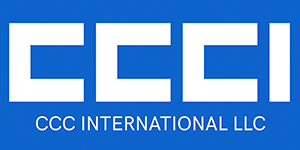5 Examples of Marketing Campaign Localization Done Right
The term “Marketing Campaign Localization” has developed as a strategic need for organizations trying to compete in different countries in the fast-evolving global business landscape. Marketing localization is the art and science of designing every promotional activity to resonate with a specific regional audience, and it extends far beyond basic translation.
Read the article to understand how marketing campaign localization can be your passport to global success.
Key takeaways
- Marketing Campaign Localization is not just a strategy it’s a necessity for businesses operating in a globalized world.
- Localization goes beyond translation. It involves a comprehensive approach that considers cultural relevance, visual design, timing, local channels, multilingual SEO, and even local partnerships.
- Tailoring marketing campaigns through localization leads to deeper engagement and higher return on investment (ROI).
- Learning from successful examples like Starbucks, Coca-Cola, Airbnb, McDonald’s, and Netflix highlights the power of marketing campaign localization.
Table of Content
- What is Marketing Campaign Localization?
- Key Components of Marketing Localization
- Why is Marketing Campaign Localization Important?
- Best Localized Marketing Campaigns
- Localize Your Marketing Campaign with CCCI
What is Marketing Campaign Localization?
Marketing strategy localization is essential for companies operating globally in today’s digital age. A significant aspect of marketing localization involves the adaptation of each marketing campaign.
Marketing campaign localization is the process of tailoring a campaign to appeal to a desired audience in a certain geographic region. This approach acknowledges that the same marketing strategy may struggle to reach varied customers from different locations and cultural backgrounds.
Localization of a marketing campaign extends beyond simply translating content into the target language. It delves deeply into cultural intricacies, customer behaviors, and preferences. Businesses may develop a deeper connection with their audience by tailoring campaigns that take into account all of the above factors.

Key Components of Marketing Localization
Marketing localization is a long process that should take into account the following key components:
Language and Content Translation: This includes localization of not only written text but also spoken or visual content in videos, images, and graphics.
Cultural Relevance: Successful localization includes comprehending and incorporating cultural nuances, values, and references relevant to the intended audience.
Adaptation of Visual and Design: Visual aspects of a marketing campaign, such as color schemes, images, and design aesthetics, should be changed to resonate with the target audience’s cultural and visual preferences.
Timing and Seasonality: Local events and holidays can influence the success of a marketing campaign. Marketing localization considers these factors to ensure timing and messaging align with local events.
Local Channels and Media: It is critical to identify the most successful communication channels and media platforms in the target region.
Multilingual SEO: Localized SEO is another vital component of successful localization efforts. Optimizing for local search engines involves thorough keyword research in the target language and region, ensuring that the campaign content ranks prominently in local search results.
Local Partnerships: Collaborating with local influencers, businesses, or organizations can lend authenticity and credibility to a localized campaign.
Why is Marketing Campaign Localization Important?
Marketing campaign localization is critical for various reasons. For starters, it enables organizations to engage on a deeper level with their target audience by personalizing their messages, visuals, and cultural allusions to resonate with local preferences and beliefs. This tailored strategy increases the likelihood of grabbing potential clients’ attention and trust.
Secondly, localization shows respect for the local culture and language, which can improve a brand’s reputation and generate goodwill. It helps to avoid cultural misunderstandings or insensitivity, which can lead to public relations disasters.
Localization also boosts the effectiveness of marketing activities. Relevant and relatable messages are more likely to generate engagement and conversions, resulting in a higher ROI.
Best Localized Marketing Campaigns
When it comes to successful marketing campaign localization, a few iconic brands have truly mastered the art.
Let’s explore some of these best examples:
Starbucks’ Global, Local Flavor
Starbucks is a global coffee giant that has mastered the art of localization. While maintaining its signature coffee offerings, Starbucks adapts its menu to incorporate local flavors and preferences.
One of the best examples is Starbucks “Sakura Blossom” in Japan. During this period, Starbucks transforms its stores with delicate pink cherry blossom-themed decor, and they introduce Sakura-flavored beverages and pastries, often featuring floral notes and pink-tinted hues. This campaign celebrates the beauty of spring and the cultural significance of sakura in Japan, providing customers with a delightful and uniquely localized Starbucks experience.
Coca-Cola’s “Share a Coke”

“Share a Coke” is one of the best localized marketing campaign examples. It was all about making the soda feel personal. In every country, Cola printed names on their cans and bottles, which were common there. So, when you picked up a Coke, you could find your name, a friend’s name, or even a nickname. It made people feel more connected to the brand. The campaign went viral, with people posting pictures of their customized Coke cans on social media platforms, creating a global conversation and turning Coca-Cola into a cultural sensation.
Airbnb’s “A Night At”
Airbnb’s “A Night At” Campaigns were pioneering in travel marketing. They transformed renowned local venues, from museums to landmarks, into short-term Airbnb stays. These campaigns didn’t just offer a place to sleep; they immersed travelers in the destination’s culture, offering unique experiences like sleeping in observatories, historic libraries, museums, and even medieval castles.
What made “A Night At” stand out was its ability to showcase Airbnb’s diverse listings while emphasizing each location’s uniqueness. It encouraged travelers to explore and connect with the local community, highlighting that accommodations were more than just a place to rest.
McDonald’s Regional Menu Items

McDonald’s is known for its remarkable ability to adapt its menu to local tastes and preferences. In various countries, you can discover a delightful array of unique menu items that are finely tuned to resonate with the local culture.
For example, in India, you can savor the McSpicy Paneer burger, a testament to McDonald’s dedication to accommodating dietary preferences, while in Japan, the Teriyaki Burger embodies their commitment to crafting offerings that harmonize with local flavors, illustrating how McDonald’s goes the extra mile to connect with the hearts and palates of specific markets.
Netflix’s Language Localization

This strategy is integral to Netflix’s global success. By offering subtitles and dubbing in numerous languages, Netflix ensures that viewers from diverse linguistic backgrounds can enjoy their content comfortably.
Furthermore, Netflix takes localization to the next level by producing region-specific content that resonates with local audiences. Whether producing original shows in Spanish for Latin America, creating K-dramas for Korean viewers, or featuring Bollywood films for Indian audiences, Netflix’s commitment to reflecting local cultures and tastes enhances its viewers’ sense of connection.
This approach makes Netflix more than just a streaming service; it becomes a platform that feels like a home for entertainment, no matter where you are or what language you speak.
Localize Your Marketing Campaign with CCCI
At CCCI, we understand the importance of tailoring marketing efforts to local audiences through the customer-centric localization and communication initiative. Our dedicated localization team is committed to paying meticulous attention to cultural, linguistic, and regional factors to ensure your message resonates profoundly with your target demographics.
By partnering with CCCI, you can be confident that your marketing campaign will not only bridge cultural gaps but also engage audiences on a personal level, driving increased brand loyalty and business success. To take the first step towards a localized and impactful marketing campaign, please don’t hesitate to contact us today. Our experts are ready to work with you to create a customized strategy that aligns with your goals and reaches the hearts of your local audience.








